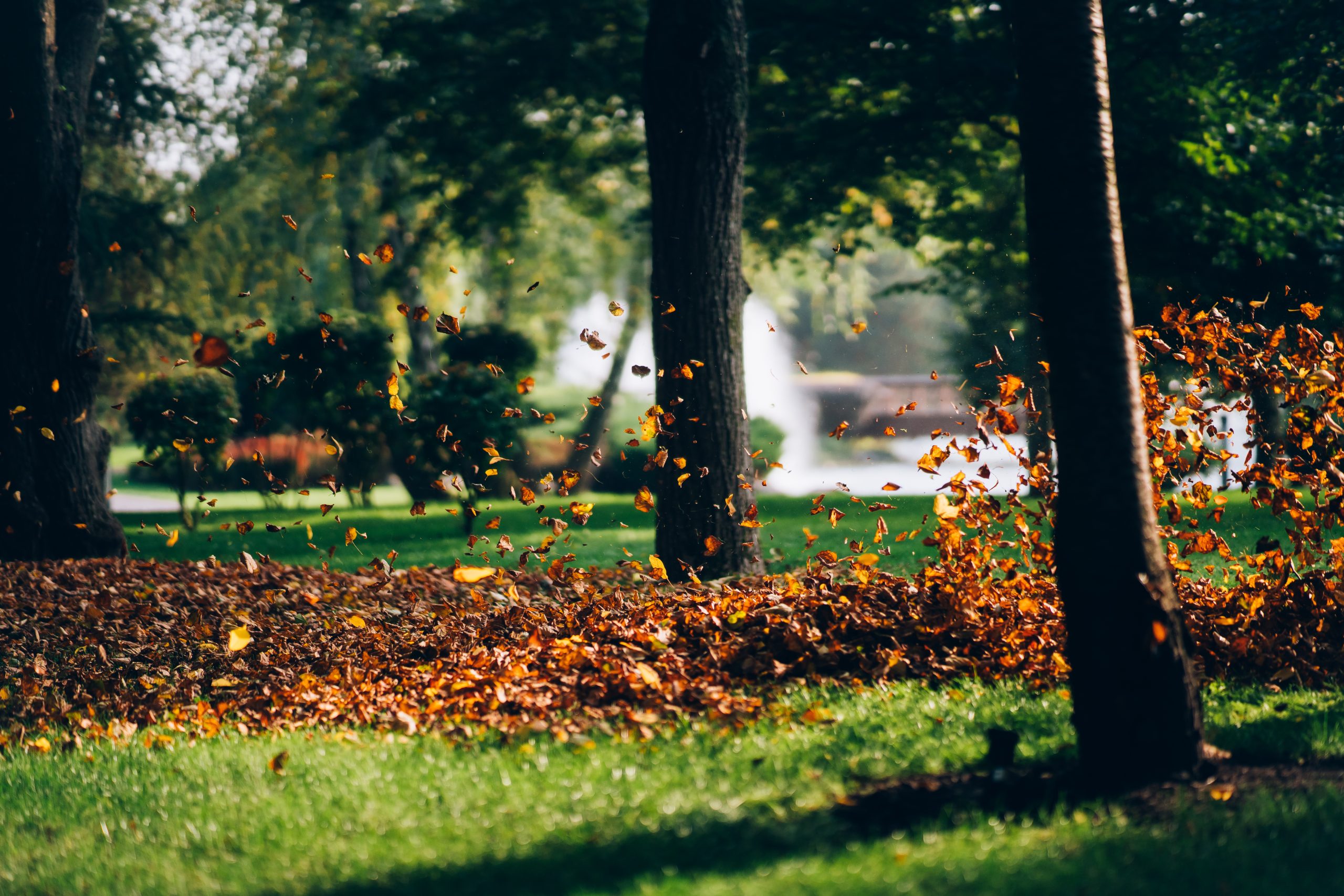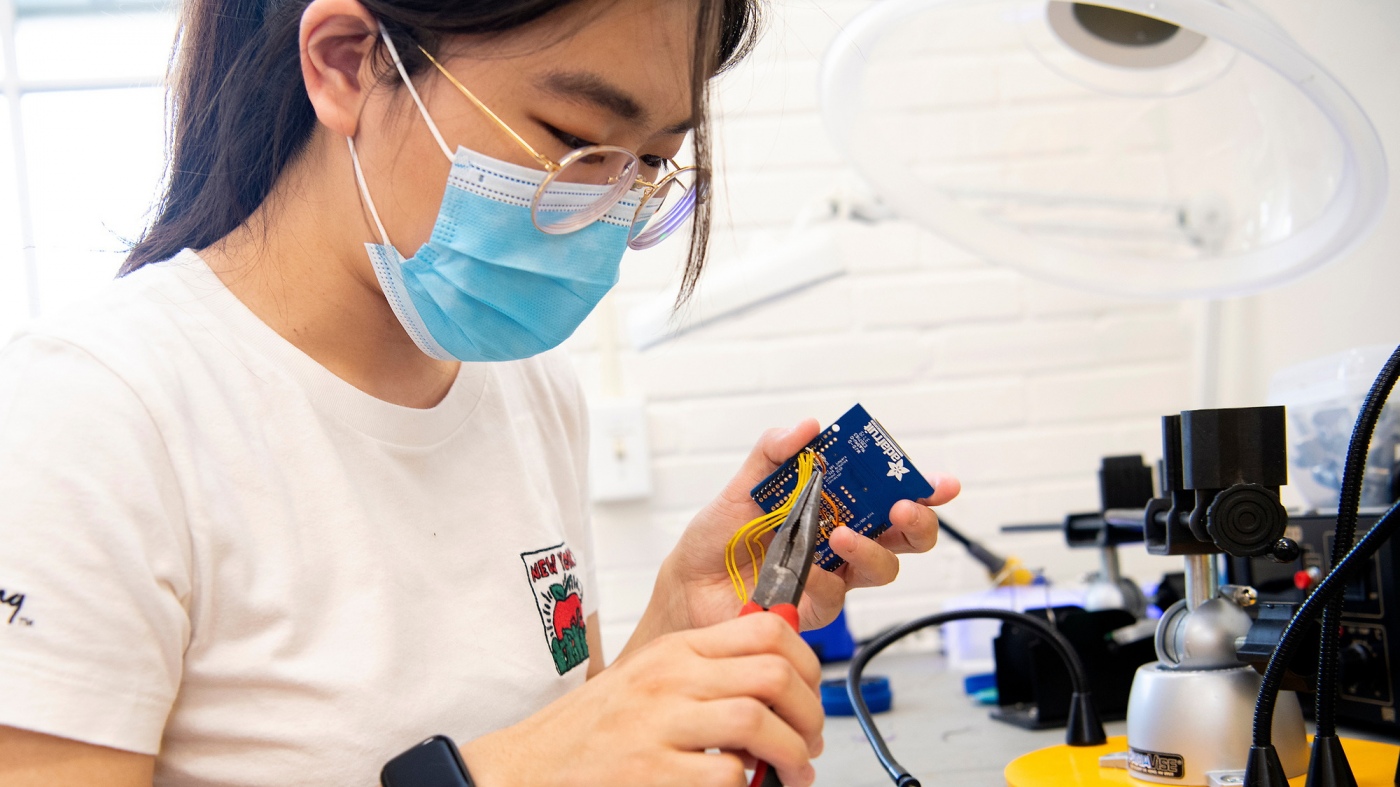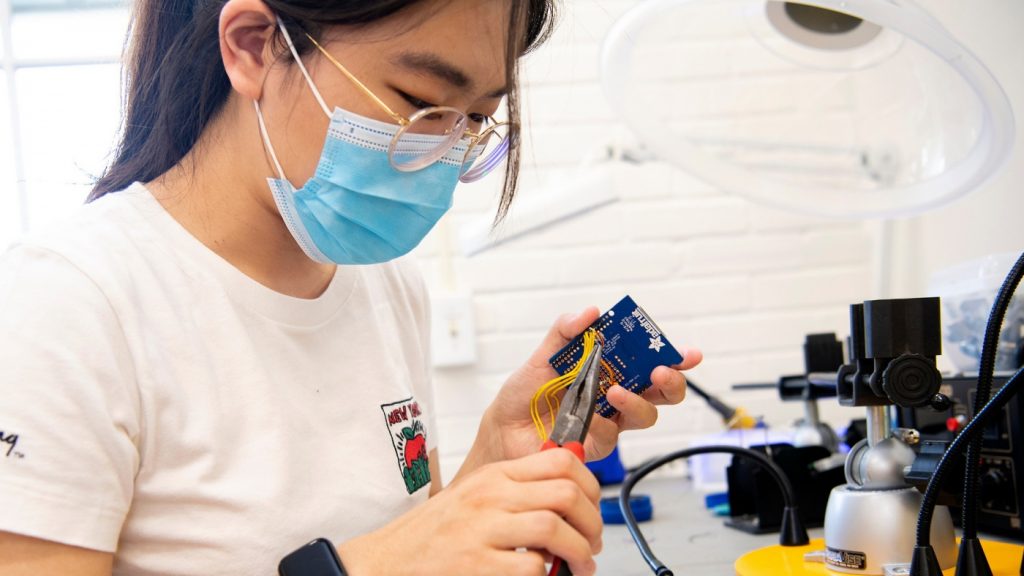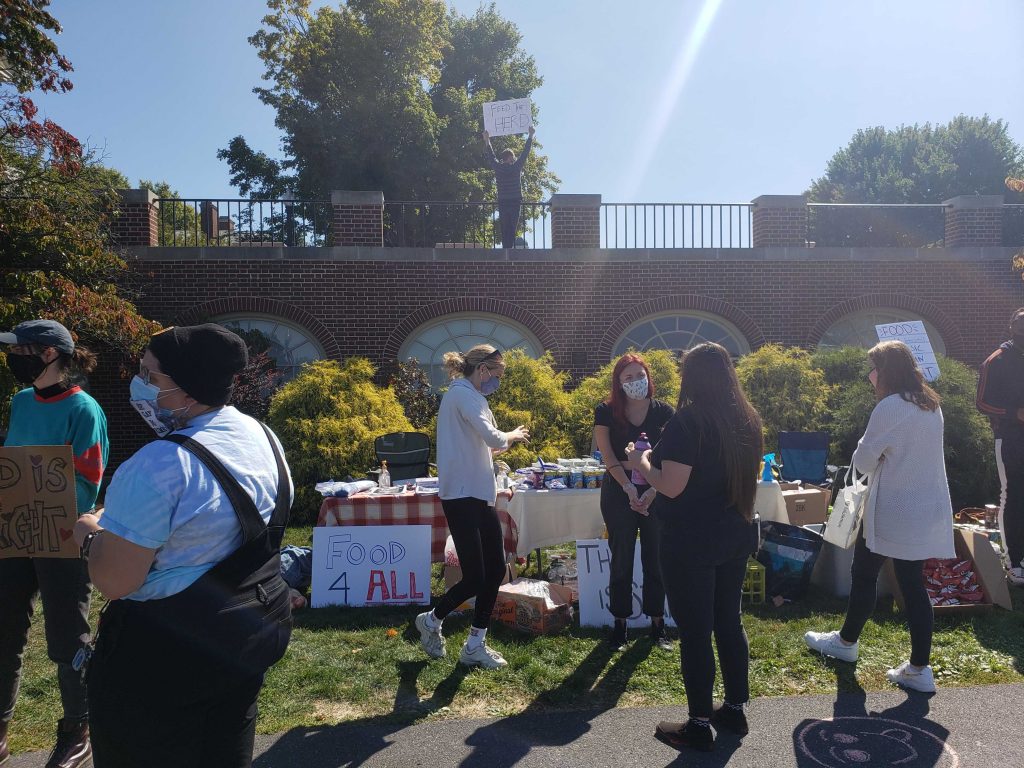Leaf them be! project
Leaves feed our soil and growing insects
In addition to adding valuable nutrients back to the soil when they decompose, leaves provide stable habitat where many insect pollinators can overwinter. Because leaves are so important to our campus ecosystem, we are experimenting with different approaches to managing leaf accumulation, including “letting them be.”

Our project has identified a number of paired research sites where leaves will either be removed or kept in place/added. Over the course of the coming year or longer, we will track the social and ecological responses to the changes at these sites. Stay tuned to this website for more information about the project/updates.
The goal of this work is to provide educational and research opportunities for students, faculty, and staff to study the impacts of simple restoration practices that can be incorporated into landscapes
A Year to Remember

AY 2020-21 was certainly one for the books at Bucknell. It presented its challenges, had us on and off campus a few times and at times had us questioning how we would make it through all the hurdles. But this year also brought out the best in us as Bucknellians. We banded together and lifted one another up. We supported each other’s education, research, hard work, mental and physical health, social and racial rights, and so much more.
As a university, we’ve had to adapt and adjust to changes in the way we learn, teach, and engage. Technology became ever more present in our already tech-driven world. We became accustomed to erratic changes in where our classrooms and offices might be on any given day. Nevertheless, we became more unified.

As a country we saw hatred-filled acts that spawned change. The country witnessed the murder of George Floyd, the uprising that followed, and the birth of the Black Lives Matter movement. As a university, we saw the response to this movement with the creation of the Anti-Racism Fund, a change in curriculum and employee training to include racial education and equality, and a rise in opportunities for black and brown Bucknellians to be truly heard. As a continued effort for improvement in diversity and inclusion, Bucknell joined over 50 other universities and colleges as an inaugural member of the new Liberal Arts Colleges Racial Equity Leadership Alliance to better tackle racial issues within our campus community.
We withstood a long and exhausting presidential election that in many ways divided us as a country and as a people. But we held hope, both as a country and a university community looking to the future. Many of us came together as the results were announced and for many, it marked a new beginning.
Groups of students, faculty, and staff alike banned together and inspired change on many issues. On campus in September, many rose up for student food insecurity that gained local news coverage. And so birthed the Food and Nutrition Task Force and the B-Swipes Donation Program to ensure no Bucknell student goes hungry.

In March, we were shaken by the violence against Asian Americans in Atlanta. We stood with those of Asian descent both on campus and around the world and showed our support for them and intolerance of such hatred and racism. We felt the impact of the verdict of Derek Chauvin in the murder of George Floyd, both as a community and a country.
The BCSE would like to congratulate all of you that are graduating this year (we know it was no small task) and praise the continued hard work and effort of all other students. We all have much to be proud of this academic year. We’ve shown that Bucknell has heart. We’ve shown how resilient we are. We’ve shown how adaptable we are. Bucknellians are dedicated survivors, workers, liberators, and philanthropists. We are ‘Ray Bucknell, strong and proud.
Some Important Research Opportunities You Should Know About

Now is the time to be thinking about your research for the summer. Deadlines for many opportunities are fast approaching. So in the spirit of staying in-the-know, here is what we know about upcoming opportunities and their deadlines.
PUR Eligibility:
The 2022 application has been updated to clarify that PUR is open to proposals from all disciplines. In the original version, proposals were focused in biology, neuroscience, animal behavior, or cell biology/biochemistry to resources available in the Biology Department. PUR will now consider applications in all departments and collaborate with Biology to ensure maximal access to available funding. Please find an updated application form here:
https://www.bucknell.edu/sites/default/files/undergraduate_research/application_pur.pdf
Upcoming Deadlines:
Feb 1 – Geisinger Summer Undergraduate Research Program (SURP) https://www.geisinger.edu/research/careers/summer-research-internships
Feb 5 – Clare Boothe Luce (women in STEM fields in which they are underrepresented) https://www.bucknell.edu/academics/undergraduate-research-opportunities/clare-boothe-luce-research-scholars
Feb 8 – Program for Undergraduate Research (research and creativity in all disciplines) https://www.bucknell.edu/academics/undergraduate-research-opportunities/program-undergraduate-research
Feb 15 – McKenna Summer Environmental Internship (environmental research) https://www.bucknell.edu/academics/beyond-classroom/internship-opportunities/mckenna-summer-environmental-internship
Feb 28 – Energy and Food Independence in Susquehanna Communities Fellowship (renewable energy) https://drive.google.com/file/d/1ce1TsV6GTpI4Wzphz7ip42V6koUP6Mds/view?usp=sharing
Mar 31 – Humanities: Mellon Student Research Grant (reimbursable expenses) https://forms.gle/mtNLq5s9BDXVWtWr9
Rolling – Confounding Problems in Humanities and Arts (reimbursable expenses, esp travel when allowed, virtual travel otherwise) https://forms.gle/3eMCmif6TAHWB7LF8
Varied – Undergraduate Research Opportunities (off-campus opportunities in STEM & Social Sciences funded by NSF)https://www.nsf.gov/crssprgm/reu/reu_search.jsp
